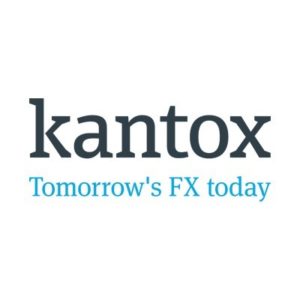Meet our CODE_n CONTEST Finalists 2016: Kantox from the UK
 Kantox is a multinational FinTech company offering FX management solutions which allow customers to manage their currency exposure, build hedging strategies, and automate FX transactions and process international payments in a smart way. Headquartered in London, the startup will join us as CODE_n CONTEST finalist at our new.New Festival in Karlsruhe, September, this fall. Prior to that, Co-founder and Chief Executive Officer Philippe Gelis has taken the time to tell us more about his company!
Kantox is a multinational FinTech company offering FX management solutions which allow customers to manage their currency exposure, build hedging strategies, and automate FX transactions and process international payments in a smart way. Headquartered in London, the startup will join us as CODE_n CONTEST finalist at our new.New Festival in Karlsruhe, September, this fall. Prior to that, Co-founder and Chief Executive Officer Philippe Gelis has taken the time to tell us more about his company!
What is Kantox all about? How did you come up with the idea?
Philippe:Kantox is a FinTech company offering foreign exchange management solutions. We develop technology to solve one of the major pain-points faced by international companies: currency management.
Before founding Kantox, I worked as a strategy consultant for different consulting firms including Deloitte. During my time there, one of my clients exporting food and wine was exposed to a foreign exchange. With the assistance of my then-colleague and Kantox co-founder Toni, we tried to help him negotiate with banks. We soon realised that the negotiation process was expensive and complex for a mid-sized firm with no access to live rates.
This experience allowed us to identify a gap in the market and therefore, an opportunity for launching a business. Large companies have the resources and knowledge to manage foreign exchange well and to negotiate fair and transparent prices with banks. By contrast, SMEs either have enormous difficulty doing so. They lack internal resources, technology and negotiation power.

Philippe Gelis, Co-founder and Chief Executive Officer of Kantox
At the onset, solving this painpoint was at the core of our value proposition. Our expertise, products, and solutions allow our customers to manage their currency exposure, build hedging strategies, automate FX transactions and process international payments in a smart and cost-efficient way.
As we expanded our business further, we realised that automation is at the base of efficiency in managing foreign exchange. In Kantox, we develop FX management software solutions that allow our clients to automate their currency strategy as well as to easily hedge their risk exposure.
We have also released our API end of last year to help clients completely automating the management of their foreign exchange exposure. That way, they have FX risk much better managed, they sabe time and increase efficiency.
“Digital Disruption“ – that’s the motto of this year’s CODE_n CONTEST. What makes your solution innovative, what makes it disruptive?
Philippe: Our belief is that transparency is central to disruption. We felt that the financial industry, long known for its opacity and lack of innovation, was overdue for radical change.
At Kantox, we develop software solutions based on advanced technology to master multi-currency complexity for international corporations, allowing our clients to monitor FX risk at all times, set up hedging policies and automate execution.
It’s time to redefine the industry by adopting more transparent, efficient and fairer models. In the end, it’s really all about the value we bring to clients.
You’re one of the 13 finalists in the Applied FinTech contest cluster. Which challenges do you think young companies have to face in this sector? How do you handle these challenges?
Philippe: In the current, quickly evolving tech-centric environment, product development must not only answer today’s problems, but also be ready for tomorrow’s challenges as well. This problem is further complicated by fundamental changes in the way we interact with technology. Be it through decentralised platforms, more and more mobile devices and the power of the cloud; innovation is rapidly and fundamentally changing the way workers perform their daily tasks. Keeping up with this tectonic shift is keeping everyone in FinTech on their toes.
I think that as we look to the future, there will come a point at which any financial company that does not manage to embrace the key concepts of FinTech (i.e. a 100% consumer-oriented firm that uses digital tools to provide the best user experience, focusing on real innovation by creating new tech-driven products) will be out of the market. This will apply to any sector, including banks’ traditional core lending business. Particularly, challenger banks, despite today’s demanding regulatory environment, have already emerged as a threat to their more established counterparts.
On our end, we’ve realised that we can’t sit on our accomplishments and expect them to sustain us over the long term. Already, we’ve evolved from a pure trading platform to offering a customisable automated solution aimed at FX management. Building off of our core, we’ve made it leaps and bounds easier for clients to protect their FX exposures and automatically trade currencies where they see fit.
You’ve probably heard the question before – but of course we’re also curious: as you have an office in London as well as in Barcelona, does the recent Brexit vote have any influence on your location decision? Do you think London’s FinTech scene will suffer from it?
Philippe: In the worst post-Brexit scenario, U.K.-based fintech firms would need to open subsidiaries or move headquarters to another EU country, and in the best one, we continue with ‘business as usual.’ But we will definitely stay in London, even if we need to get regulated in another country form the EU.
I think the City will continue being the financial hub of Europe – but I definitely think that the UK will lose power, because it will lose people.
London’s fintech scene could suffer in terms of investment. A lot of venture capitals are receiving money from the European Union, so it’s public money to invest: they have obligations to invest in EU companies. With the UK out of the EU, they won’t be able to invest in UK.
Thanks for your honest answers, Philippe!






Write a comment